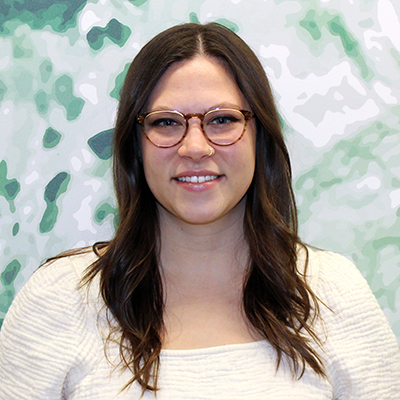 Melissa McDaniel, Ph.D.Melissa McDaniel, Ph.D., a postdoctoral researcher in the UAB Department of Microbiology, is preparing for an upcoming year of groundbreaking research at Radboud University Medical Center in the Netherlands.
Melissa McDaniel, Ph.D.Melissa McDaniel, Ph.D., a postdoctoral researcher in the UAB Department of Microbiology, is preparing for an upcoming year of groundbreaking research at Radboud University Medical Center in the Netherlands.
Her work revolves around the complex world of polymicrobial infections and the fascinating dynamics that shape the outcomes of chronic diseases.
The Heersink communications team sat with McDaniel to learn more about her research, why she chose this international adventure, and the goals she aims to accomplish.
Q: Could you please provide an overview of your research and the specific focus of your postdoctoral work at UAB?
My research focus has always been on polymicrobial infections, specifically examining how bacterial-bacterial interactions can influence disease outcomes in individuals with chronic infections.
During my postdoctoral work at UAB, I've delved into the specific interactions between Pseudomonas aeruginosa and non-tuberculous mycobacteria (NTM), such as Mycobacteroides abscessus, and how these interactions impact the severity of infections in people with cystic fibrosis.
Q: What inspired you to choose the Netherlands for your upcoming year of research?
I was impressed by Radboud University Medical Center because it stood out for its leading laboratory in the field of susceptibility testing for non-tuberculosis mycobacteria (NTM) and its expertise in cultivating challenging mycobacterial strains.
The university is also known for its collaborative environment, bringing together lung specialists, immunologists, and medical microbiologists to support diagnostics and therapy for mycobacterial infections.
While I've been fortunate to investigate the Pseudomonas side of polymicrobial interactions in Dr. Jessica Scoffield's lab at the UAB Department of Microbiology, my experience with Dr. van Ingen in the Netherlands will be invaluable for understanding the impact of NTM and developing effective treatment strategies for these complex infections.
Q: How do you anticipate your research will benefit from this international experience in the Netherlands?
International experiences always offer fresh perspectives, and my time in the Netherlands will be an excellent opportunity to collaborate with clinicians and researchers from different parts of the world.
Working in a clinical department with access to clinical isolates, patient samples, and direct patient interaction will provide me with unique insights into the challenges faced by individuals with these infections. It will also enable me to discover new ways to combat these infections.
Q: Can you share any goals or milestones you hope to achieve during your year in the Netherlands that will contribute to the advancement of your research?
During my stay in the Netherlands, I will be working on traditional postdoctoral milestones such as publishing my work, applying for funding opportunities, and participating in conferences.
Beyond these, I aim to establish long-lasting collaborations with international researchers and gain a better understanding of global health systems and challenges.
Q: What advice do you have for other researchers who may be considering international research experiences, and how can they make the most of such opportunities for personal and professional growth?
I believe it's an excellent idea for researchers to step out of their comfort zones and embrace international experiences. Foster meaningful connections with international colleagues, as these relationships can lead to exciting collaborations.
One lesson I've learned during this process is the importance of planning. There are numerous unexpected logistics when working in another country, such as setting up bank accounts, obtaining visas, and arranging health insurance. These tasks can take longer than expected, so it's crucial to plan ahead.